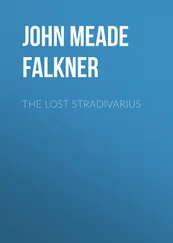John Barth - Lost in the Funhouse
Здесь есть возможность читать онлайн «John Barth - Lost in the Funhouse» весь текст электронной книги совершенно бесплатно (целиком полную версию без сокращений). В некоторых случаях можно слушать аудио, скачать через торрент в формате fb2 и присутствует краткое содержание. Год выпуска: 2014, ISBN: 2014, Издательство: Knopf Doubleday Publishing Group, Жанр: Современная проза, на английском языке. Описание произведения, (предисловие) а так же отзывы посетителей доступны на портале библиотеки ЛибКат.
- Название:Lost in the Funhouse
- Автор:
- Издательство:Knopf Doubleday Publishing Group
- Жанр:
- Год:2014
- ISBN:978-0-8041-5250-1
- Рейтинг книги:3 / 5. Голосов: 1
-
Избранное:Добавить в избранное
- Отзывы:
-
Ваша оценка:
- 60
- 1
- 2
- 3
- 4
- 5
Lost in the Funhouse: краткое содержание, описание и аннотация
Предлагаем к чтению аннотацию, описание, краткое содержание или предисловие (зависит от того, что написал сам автор книги «Lost in the Funhouse»). Если вы не нашли необходимую информацию о книге — напишите в комментариях, мы постараемся отыскать её.
Lost in the Funhouse — читать онлайн бесплатно полную книгу (весь текст) целиком
Ниже представлен текст книги, разбитый по страницам. Система сохранения места последней прочитанной страницы, позволяет с удобством читать онлайн бесплатно книгу «Lost in the Funhouse», без необходимости каждый раз заново искать на чём Вы остановились. Поставьте закладку, и сможете в любой момент перейти на страницу, на которой закончили чтение.
Интервал:
Закладка:
The shade-sun situation didn’t apply to the front seat, owing to the windshield; if anything the driver got more sun, since the person on the passenger side not only was shaded below by the door and dashboard but might swing down his sunvisor all the way too.
“Is that them?” Magda asked. Ambrose’s mother teased the boys for letting Magda win, insinuating that “somebody [had] a girlfriend.” Peter and Ambrose’s father reached a long thin arm across their mother to butt his cigarette in the dashboard ashtray, under the lighter. The prize this time for seeing the Towers first was a banana. Their mother bestowed it after chiding their father for wasting a half-smoked cigarette when everything was so scarce. Magda, to take the prize, moved her hand from so near Ambrose’s that he could have touched it as though accidentally. She offered to share the prize, things like that were so hard to find; but everyone insisted it was hers alone. Ambrose’s mother sang an iambic trimeter couplet from a popular song, femininely rhymed:
“ What’s good is in the Army;
What’s left will never harm me?
Uncle Karl tapped his cigar ash out the ventilator window; some particles were sucked by the slipstream back into the car through the rear window on the passenger side. Magda demonstrated her ability to hold a banana in one hand and peel it with her teeth. She still sat forward; Ambrose pushed his glasses back onto the bridge of his nose with his left hand, which he then negligently let fall to the seat cushion immediately behind her. He even permitted the single hair, gold, on the second joint of his thumb to brush the fabric of her skirt. Should she have sat back at that instant, his hand would have been caught under her.
Plush upholstery prickles uncomfortably through gabardine slacks in the July sun. The function of the beginning of a story is to introduce the principal characters, establish their initial relationships, set the scene for the main action, expose the background of the situation if necessary, plant motifs and foreshadowings where appropriate, and initiate the first complication or whatever of the “rising action.” Actually, if one imagines a story called “The Funhouse,” or “Lost in the Funhouse,” the details of the drive to Ocean City don’t seem especially relevant. The beginning should recount the events between Ambrose’s first sight of the funhouse early in the afternoon and his entering it with Magda and Peter in the evening. The middle would narrate all relevant events from the time he goes in to the time he loses his way; middles have the double and contradictory function of delaying the climax while at the same time preparing the reader for it and fetching him to it. Then the ending would tell what Ambrose does while he’s lost, how he finally finds his way out, and what everybody makes of the experience. So far there’s been no real dialogue, very little sensory detail, and nothing in the way of a theme. And a long time has gone by already without anything happening; it makes a person wonder. We haven’t even reached Ocean City yet: we will never get out of the funhouse.
The more closely an author identifies with the narrator, literally or metaphorically, the less advisable it is, as a rule, to use the first-person narrative viewpoint. Once three years previously the young people aforementioned played Niggers and Masters in the backyard; when it was Ambrose’s turn to be Master and theirs to be Niggers Peter had to go serve his evening papers; Ambrose was afraid to punish Magda alone, but she led him to the whitewashed Torture Chamber between the woodshed and the privy in the Slaves Quarters; there she knelt sweating among bamboo rakes and dusty Mason jars, pleadingly embraced his knees, and while bees droned in the lattice as if on an ordinary summer afternoon, purchased clemency at a surprising price set by herself. Doubtless she remembered nothing of this event; Ambrose on the other hand seemed unable to forget the least detail of his life. He even recalled how, standing beside himself with awed impersonality in the reeky heat, he’d stared the while at an empty cigar box in which Uncle Karl kept stone-cutting chisels: beneath the words El Producto , a laureled, loose-toga’d lady regarded the sea from a marble bench; beside her, forgotten or not yet turned to, was a five-stringed lyre. Her chin reposed on the back of her right hand; her left depended negligently from the bench-arm. The lower half of scene and lady was peeled away; the words EXAMINED BY _____ were inked there into the wood. Nowadays cigar boxes are made of pasteboard. Ambrose wondered what Magda would have done, Ambrose wondered what Magda would do when she sat back on his hand as he resolved she should. Be angry. Make a teasing joke of it. Give no sign at all. For a long time she leaned forward, playing cow-poker with Peter against Uncle Karl and Mother and watching for the first sign of Ocean City. At nearly the same instant, picnic ground and Ocean City standpipe hove into view; an Amoco filling station on their side of the road cost Mother and Uncle Karl fifty cows and the game; Magda bounced back, clapping her right hand on Mother’s right arm; Ambrose moved clear “in the nick of time.”
At this rate our hero, at this rate our protagonist will remain in the funhouse forever. Narrative ordinarily consists of alternating dramatization and summarization. One symptom of nervous tension, paradoxically, is repeated and violent yawning; neither Peter nor Magda nor Uncle Karl nor Mother reacted in this manner. Although they were no longer small children, Peter and Ambrose were each given a dollar to spend on boardwalk amusements in addition to what money of their own they’d brought along. Magda too, though she protested she had ample spending money. The boys’ mother made a little scene out of distributing the bills; she pretended that her sons and Magda were small children and cautioned them not to spend the sum too quickly or in one place. Magda promised with a merry laugh and, having both hands free, took the bill with her left. Peter laughed also and pledged in a falsetto to be a good boy. His imitation of a child was not clever. The boys’ father was tall and thin, balding, fair-complexioned. Assertions of that sort are not effective; the reader may acknowledge the proposition, but. We should be much farther along than we are; something has gone wrong; not much of this preliminary rambling seems relevant. Yet everyone begins in the same place; how is it that most go along without difficulty but a few lose their way?
“Stay out from under the boardwalk,” Uncle Karl growled from the side of his mouth. The boys’ mother pushed his shoulder in mock annoyance. They were all standing before Fat May the Laughing Lady who advertised the funhouse. Larger than life, Fat May mechanically shook, rocked on her heels, slapped her thighs while recorded laughter — uproarious, female — came amplified from a hidden loudspeaker. It chuckled, wheezed, wept; tried in vain to catch its breath; tittered, groaned, exploded raucous and anew. You couldn’t hear it without laughing yourself, no matter how you felt. Father came back from talking to a Coast-Guardsman on duty and reported that the surf was spoiled with crude oil from tankers recently torpedoed offshore. Lumps of it, difficult to remove, made tarry tidelines on the beach and stuck on swimmers. Many bathed in the surf nevertheless and came out speckled; others paid to use a municipal pool and only sunbathed on the beach. We would do the latter. We would do the latter. We would do the latter.
Under the boardwalk, matchbook covers, grainy other things. What is the story’s theme? Ambrose is ill. He perspires in the dark passages; candied apples-on-a-stick, delicious-looking, disappointing to eat. Funhouses need men’s and ladies’ room at intervals. Others perhaps have also vomited in corners and corridors; may even have had bowel movements liable to be stepped in in the dark. The word fuck suggests suction and/or and/or flatulence. Mother and Father; grandmothers and grandfathers on both sides; great-grandmothers and great-grandfathers on four sides, et cetera. Count a generation as thirty years: in approximately the year when Lord Baltimore was granted charter to the province of Maryland by Charles I, five hundred twelve women — English, Welsh, Bavarian, Swiss — of every class and character, received into themselves the penises the intromittent organs of five hundred twelve men, ditto, in every circumstance and posture, to conceive the five hundred twelve ancestors of the two hundred fifty-six ancestors of the et cetera et cetera et cetera et cetera et cetera et cetera et cetera et cetera of the author, of the narrator, of this story, Lost in the Funhouse. In alleyways, ditches, canopy beds, pinewoods, bridal suites, ship’s cabins, coach-and-fours, coaches-and-four, sultry toolsheds; on the cold sand under boardwalks, littered with El Producto cigar butts, treasured with Lucky Strike cigarette stubs, Coca-Cola caps, gritty turds, cardboard lollipop sticks, matchbook covers warning that A Slip of the Lip Can Sink a Ship. The shluppish whisper, continuous as seawash round the globe, tidelike falls and rises with the circuit of dawn and dusk.
Читать дальшеИнтервал:
Закладка:
Похожие книги на «Lost in the Funhouse»
Представляем Вашему вниманию похожие книги на «Lost in the Funhouse» списком для выбора. Мы отобрали схожую по названию и смыслу литературу в надежде предоставить читателям больше вариантов отыскать новые, интересные, ещё непрочитанные произведения.
Обсуждение, отзывы о книге «Lost in the Funhouse» и просто собственные мнения читателей. Оставьте ваши комментарии, напишите, что Вы думаете о произведении, его смысле или главных героях. Укажите что конкретно понравилось, а что нет, и почему Вы так считаете.












